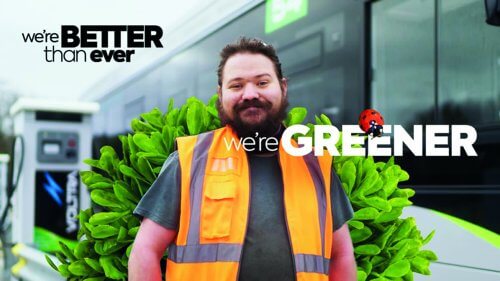
On 17 June, operators marked Clean Air Day as part of the industry-wide campaign to get people back on public transport as the economy rebuilds. Every year, air pollution causes up to 36,000 deaths in the UK, with the WHO and UK Government recognising that it is the largest environmental health risk the country faces. Clean Air Day is the UK’s largest air pollution campaign, and is led by Global Action Plan, with the aim of improving public understanding of air pollution, building awareness of how it affects health, and explaining the actions we can take to tackle it.
Tom Quay, CEO of UK public transport app and website provider, Passenger commented on key tactics to convince more people to be more eco-friendly: “Another environmental day is upon us, providing another opportunity to boost awareness of planet-saving initiatives. Many campaigns come hand-in-hand with shocking stats about our current impact on the environment. However, is highlighting pollution levels really enough to get through to people?
“The Government released a study a few weeks ago showing the 100 most polluted areas in the UK. News articles highlighted the average concentration of PM2.5 pollution particles, detailing how many areas were above the World Health Organisation limit of ten. Highlighting towns was helpful, but the technical jargon is likely to have still baffled some. For me, ‘shock’ tactics are only truly shocking if people can relate to them. For example, noting the amount of carbon dioxide produced by a 15km car journey is one thing, but equating it to the number of cups of tea you can make – 1,100 cups in this instance – is far more relatable. This is what we’ve done with our Premium app, so users can see how much impact they’re actually having in real-life terms when they take the bus.
“In addition to ‘shock’ tactics, we need to show people how more eco-friendly practices aren’t an added inconvenience. The Centre for Cities think tank recently suggested that a five-day office week could be the norm again within two years. The added inconvenience of having to travel to work means people will want to take the easiest route possible – aka, their cars in most cases. This is why we need to make public transport as easy a solution as simply jumping in the car, whether it’s operators adopting more convenient journey planning and ticketing systems, or the Government investing more in public transport to improve bus frequency and add more routes. Changes won’t happen overnight, but we need to do everything we can to convert people to an eco-friendlier lifestyle – and understanding their main decision drivers is key to this.”

